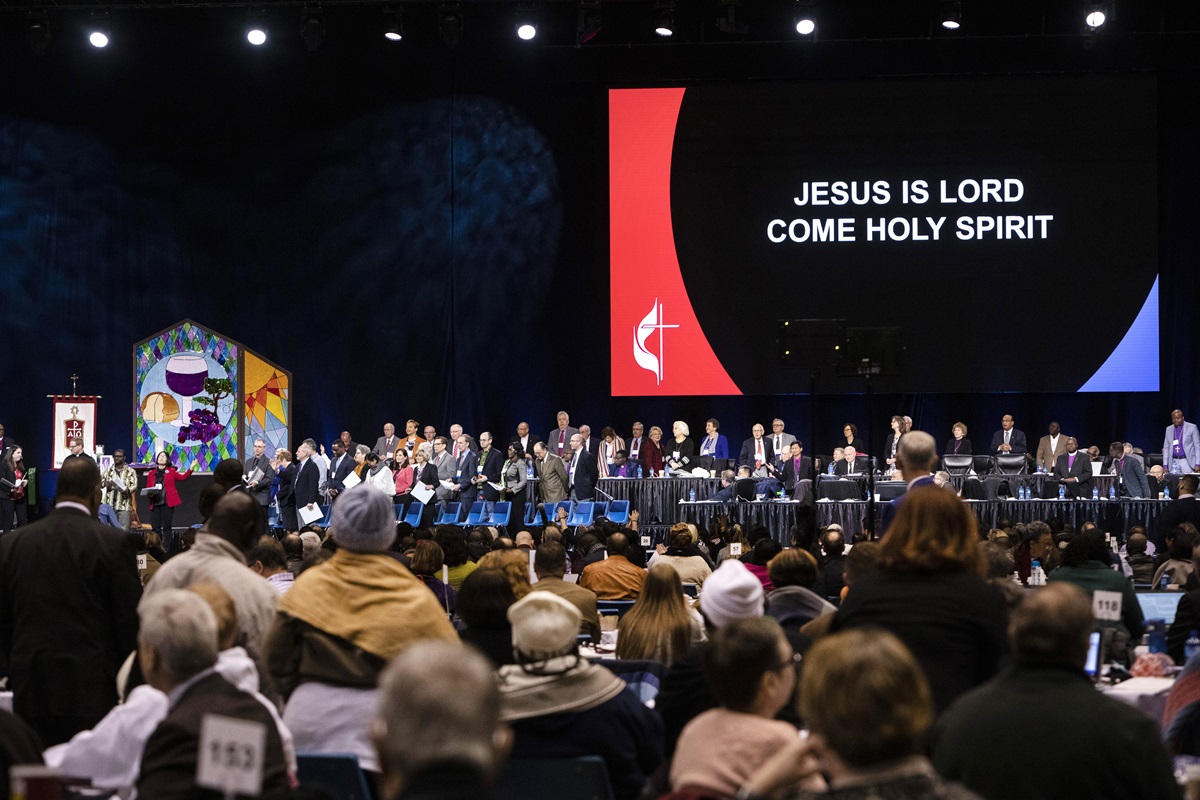General Conference organizers are looking into whether ineligible people might have received credentials to vote during the special session of The United Methodist Church’s top lawmaking assembly.
After an in-depth review, it appears possible “a very limited number” of ineligible people who earlier were correctly denied delegate credentials, later were able to obtain them, said the Rev. Gary W. Graves, secretary of the General Conference. He declined to give a more precise figure.
The revelation of potential voting irregularities comes after a highly contentious General Conference in which delegates aimed to set the denomination’s direction in its longtime debate over homosexuality.
By 438-384, the voters adopted the Traditional Plan, which reinforces the denomination’s bans on same-sex weddings and “self-avowed practicing” gay clergy and adds enforcement measures.
Graves said the number of possible ineligible voters was too slim to affect the final outcome on the Traditional Plan or the defeat of the rival One Church Plan, which would have left questions of ordination and marriage closer to the local level.
However, voters later decided by a two-vote margin, 402-400, to substitute a minority report for Petition 90066, disaffiliation legislation that would allow churches, within limitations, to leave the denomination while keeping church property.
General Conference organizers are consulting with Leonard Young, the professional parliamentarian who served during General Conference, about what impact any ineligible voters would have on this legislative action.
Because voting is by secret ballot, Graves said, General Conference organizers do not know if the possible ineligible voters supported a particular outcome.
Both the Traditional Plan and disaffiliation legislation face a review in April by the Judicial Council, the denomination’s top court. The requests for constitutional review came before the issue of ineligible voters became public.
The court had earlier identified constitutional problems in both the Traditional Plan and the original version of Petition 90066.
The ineligibility concerns come after a General Conference with especially high security, where extra measures were taken to ensure only delegates or their reserves had access to the voting area. Observers of the legislative assembly, held in a former football stadium, only had access to the floor above where delegates convened.
Graves said he became aware of the concerns after an inquiry about the registration and delegate-credentialing process.
In consultation with Duncan McMillan, the chair of the Commission on General Conference, Graves and others started an in-depth review to prepare the delegate attendance records as required by General Conference rules.
Delegates to the multinational General Conference are equally divided between lay and clergy. The 2019 General Conference was to have 864 delegates, but 31 were absent — primarily because they were unable to get visas.
Each United Methodist annual conference elects a designated number of delegates and as many reserves as the conference chooses. Each annual conference’s secretary then submits the names and contact information of those elected to General Conference organizers.
Information about delegates and reserve delegates is then entered into a General Conference database, which is used to create credential cards. The cards are then distributed to each conference secretary for signature and distribution to the delegates.
When the delegates arrive at General Conference, they bring this credential card, their passport or other photo identification to register and pick up the credentials prepared for them.
“There are cases where credential cards have been lost or not able to get to delegates and so in that case they go through a process of replacement,” Graves said.
“They fill out their name and it’s compared to the photo ID and given to the volunteer or staff who is working that station. As long as they are in the database and as long as the photo ID matches the name they have put on the credential card, they are issued the credentials.”
In the review, Graves, the General Conference business manager, other staff and an independent auditing firm crosschecked credential cards, name badge bar code scans, attendance forms, reserve delegate seating forms and other resources.
“At this point, we’re going to be submitting everything we have to the Commission on General Conference and they will issue a statement about what they believe has occurred,” Graves said.
The commission also will determine any next steps. He added the full commission would convene as soon as possible.
“The integrity of our election and credentialing process is critical, and we will take the necessary steps to improve and ensure it,” Graves said.
McMillan said in a statement that the executive committee of the General Conference Commission is considering recommendations to the full commission.
“We are committed to working to strengthen the credentialing process,” McMillan said.
Hahn is a multimedia news reporter for United Methodist News Service. Contact her at (615) 742-5470 or newsdesk@umcom.org. To read more United Methodist news, subscribe to the free Daily or Weekly Digests.
Like what you're reading? Support the ministry of UM News! Your support ensures the latest denominational news, dynamic stories and informative articles will continue to connect our global community. Make a tax-deductible donation at ResourceUMC.org/GiveUMCom.




